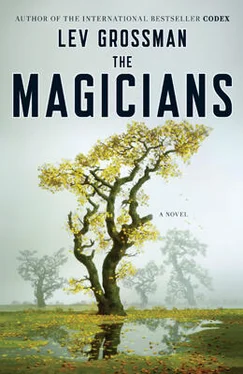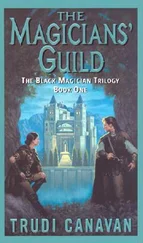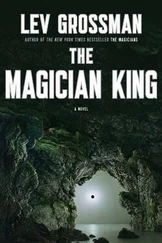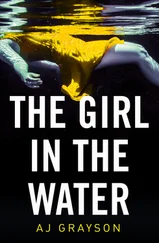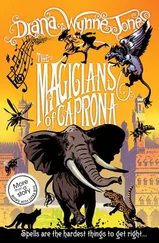Almost nothing happens. Jane and Helen fill up the pages with interminable conversations about right and wrong and teenage Christian metaphysics and whether their true obligations lie on Earth or in Fillory. Jane is desperately worried about Martin but also, like Quentin, a little jealous: whatever iron law kept the Chatwins from staying in Fillory forever, he had found a loophole, or it had found him. Alive or dead, he had managed to overstay his tourist visa.
But Helen, who has a scoldy streak, heaps scorn on Martin — she thinks he’s just hiding in Fillory so he won’t have to go home. He’s the child who doesn’t want to leave the playground, or who won’t go to bed. He’s Peter Pan. Why can’t he grow up and face the real world? She calls him selfish, self-indulgent, “the biggest baby of us all.”
In the end the sisters are picked up by a majestic clipper ship that sails through the sand as if it were water. The ship is crewed by large bunnies who would be overly cutesy (the Wandering Dune -haters always compared them to Ewoks) if it weren’t for their impressively hard-assed attention to the technical details of operating their complex vessel.
The bunnies leave Jane and Helen with a gift, a set of magical buttons they can use to zap themselves from Earth to Fillory and back at will. On returning to England, Helen, in a fit of self-righteousness, promptly hides the buttons and won’t tell Jane where they are, upon which Jane excoriates her in fine period vernacular and turns the entire household upside down and inside out. But she never finds the buttons, and on that unsatisfying note the book, and the whole series, ends.
Even if it didn’t turn out to be the final book in the series, Quentin wondered where Plover could possibly have gone with the story in The Magicians . For one thing he was out of Chatwins: the books always featured two Chatwin children, an older one from the previous book and a new, younger one. But pretty, dark-haired Jane was the last and youngest Chatwin. Would she have gone back to Fillory alone? It broke the pattern.
For another, half of the fun of the books was waiting for the Chatwins to find their way into Fillory, for the magic door that opens for them and them only to appear. You always knew it would, and it always surprised you when it did. But with the buttons you could shuttle back and forth at will. Where was the miracle in that? Maybe that was why Helen hid them. They might as well have built a subway to Fillory.
Quentin’s conversations with his parents were so circular and self-defeating, they sounded like experimental theater. In the mornings he lay in bed as long as he could stand it, in an attempt to avoid breakfast with them, but they always waited him out. He couldn’t win: they had even less to do than he did. Sometimes he wondered if it was a perverse game they played, that they were in on and he wasn’t.
He would come down to find them sitting at a table littered with crusts and crumbs and clementine peels and cereal bowls. While he pretended to be interested in the Chesterton Chestnut , he would furiously search for some even remotely plausible topic of conversation:
“So. Are you guys still going on that trip to South America?”
“South America?” His dad looked up, startled, as if he’d forgotten Quentin was there.
“Aren’t you going to South America?”
A look passed between Quentin’s parents.
“Spain. We’re going to Spain and Portugal.”
“Oh, Portugal. Right. I was thinking Peru for some reason.”
“Spain and Portugal. It’s for your mother. There’s an artists’ exchange with the university in Lisbon. Then we’re going to take a boat trip down the Tigris.”
“ Tagus , darling!” Quentin’s mother said, with her tinkling I-married-an-idiot! laugh. “The Tagus! The Tigris is in Iraq.”
She bit into a piece of raisin toast with her large straight teeth.
“Well, I don’t think we’ll be sailing down the Tigris anytime soon!” Quentin’s father laughed loudly at this, exactly as if it were funny, and then paused for thought. “Darling, do you remember that week we spent in a houseboat on the Volga…?”
An extended Russian reminiscence followed, a duet punctuated by significant silences that Quentin interpreted as allusions to sexual activities that he didn’t want to know about. It was enough to make you envy the Chatwins, with Dad in the army and Mum in the madhouse. Mayakovsky would have known what to do with this kind of conversation. He would have silenced it. He wondered how hard that spell was to learn.
By about eleven every morning Quentin would hit his limit and flee the house for the relative safety of Chesterton, which stubbornly refused to reveal even the slightest hint of mystery or intrigue beneath its green, self-satisfied exterior. He had never learned to drive, so he rode his father’s white 1970s-era ten-speed, which weighed approximately one metric ton, to the center of town. Out of deference to its glorious Colonial heritage the town was governed by a set of draconian zoning laws that kept everything in a state of permanent unnatural quaintness.
Knowing no one, caring about nothing, Quentin took a tour of the low-ceilinged, heavy-timbered residence of some Revolutionary luminary. He inspected a boxy white-painted Unitarian church, est. 1766. He surveyed the lush flat lawns where amateur Continental irregulars had faced off against well-drilled, well-armed Redcoats, with predictable results. There was one pleasant surprise, hidden behind the church: a lovely half-vanished seventeenth-century graveyard, a little square glebe of ultra-green grass scattered with wet saffron-colored elm leaves, with a bent wrought-iron fence around it. Inside, it was cool and hushed.
The gravestones were all winged skulls and bad devotional quatrains about whole families carried off by fever, weathered in places into illegibility. Quentin crouched down on the wet grass to try to decipher one very old one, a rectangle of blue slate that had split in half and sunk halfway into the green turf, which rose up to meet it like a wave.
“Quentin.”
He straightened up. A woman about his age had come in through the cemetery gate.
“Hi?” he said cautiously. How did she know his name?
“I guess you didn’t think I would find you,” she said unsteadily. “I guess you didn’t think of that.”
She walked right up to him. At the last possible moment, too late to do anything about it, he realized that she wasn’t going to stop. Without breaking stride she grabbed the front of his barn jacket and marched him stumbling backward over a low footstone right into the aromatic branches of a cypress tree. Her face, pushed right up in front of his, dangerously close, was an angry mask. It had been raining off and on all afternoon, and the needles were damp.
He resisted the impulse to struggle. He wasn’t going to be caught fighting a girl in a churchyard.
“Whoa, whoa, whoa!” he said. “Stop. Just stop.”
“Now I’m here,” she said, clinging precariously to her composure, “now I’m here, and we are going to talk. You are going to deal with me.”
Now that he had a closer look at her he could see she was covered in warning signs. Her whole body screamed unbalance. She was too pale and too thin. Her eyes were too wild. Her long dark hair was lank and smelled unwashed. She was dressed in a raggedy goth outfit — her arms were wrapped in what looked like black electrical tape. There were scabby red scratches on the backs of her hands.
He almost didn’t recognize her.
“I was there, and you were there,” Julia said, locking eyes with him. “Weren’t you. In that place. That school, or whatever it was. You got in, didn’t you?”
Читать дальше
